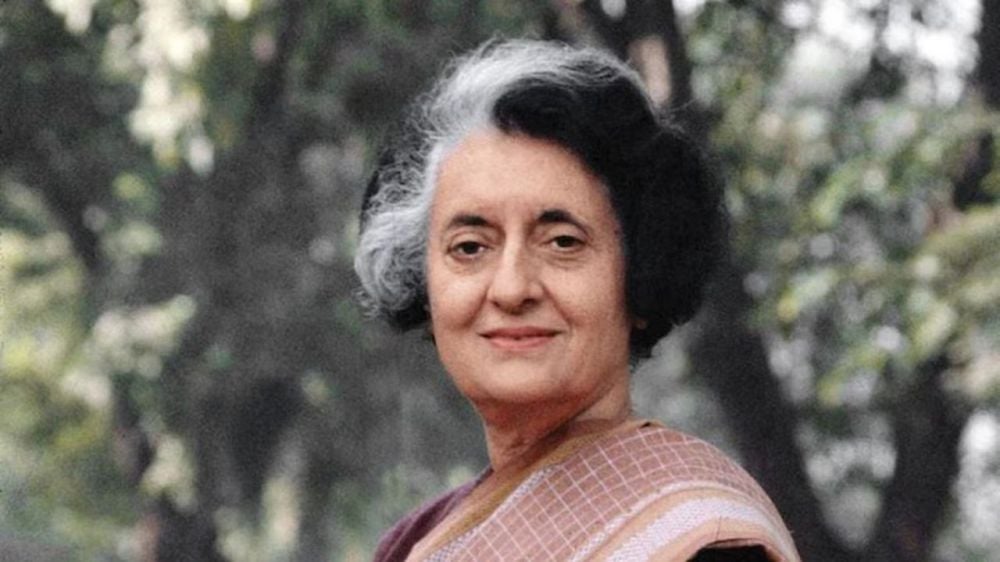
A big news is coming out regarding the cabinet meeting of Modi government. The proposal for a countrywide election has been approved in the Modi cabinet meeting. The report of the committee headed by former President Ram Nath Kovind was discussed in the cabinet meeting and the government approved it. Let us tell you that if this proposal is implemented as a law, then Lok Sabha and assembly elections can be held simultaneously across the country from 2029.
Lok Sabha and Assembly elections were held simultaneously in the country
Before the Lok Sabha elections 2024, the Center has taken a big step towards 'one nation, one election'. A committee headed by former President Ram Nath Kovind has submitted its report on holding simultaneous elections in the country to President Draupadi Murmu. Prime Minister Narendra Modi has been recommending simultaneous elections in the country for a long time. It is believed that simultaneous elections can be held in the country in 2029. But 'one country, one election' is not a new idea. Lok Sabha and assembly elections have been held simultaneously in the country before.
The issue of 'one nation, one election' came to the fore when during a program in 2018, PM Narendra Modi asked whether Lok Sabha and assembly elections could be held simultaneously in the country? Then he called an all-party meeting to discuss the issue. During this, he sought the opinion of all political parties on 'one country, one election'. Even before the Lok Sabha elections 2019, the Election Commission had said that it is not possible to conduct simultaneous elections in the country this time. The Commission said that for this the government will have to complete many legal procedures. Then during the Corona epidemic, the matter cooled down completely. Now the Center has taken a big step in this direction.
Elections have been held four times simultaneously in the country
Lok Sabha and Assembly elections have been held in the country not once or twice but four times. After independence, Lok Sabha and Assembly elections were held simultaneously in the country from 1951 to 1967. The first general election in the country was held in 1951-52. During this period, Assembly elections were also held in the states. After this, Lok Sabha and Assembly elections were held simultaneously in 1957, 1962 and 1967. But after this, simultaneous elections could never be held in the country.
then this change happened
This changed after four simultaneous elections were held in the country in 1967. In fact, Congress did not get a majority in the Uttar Pradesh assembly elections held that year. At that time there were 423 assembly seats in UP. Congress could win only 198 of these seats. Any party needed 212 MLAs to form the government. In the elections, the Bharatiya Jana Sangh Party stood second with 97 seats. Congress formed the government with the support of 37 independent MLAs and some other parties. Then CP Gupta became the Chief Minister of Uttar Pradesh.
This trend started in other states as well
Due to the rebellious attitude of Chaudhary Charan Singh, CP Gupta's government fell within a month. Then Chaudhary Charan Singh formed the government in the state along with Bharatiya Jansangh Party and Samajwadi Samajwadi. But due to internal differences in the alliance, this government could not last long. Chaudhary Charan Singh resigned after a year and recommended dissolution of the assembly. Gradually this trend started in many other states as well.
Why did Indira hold early elections?
In 1967, simultaneous elections were held in the country. According to the rules, the next general election was to be held in 1972. Former Prime Minister Indira Gandhi nationalized the banks. She played an important role in separating Bangladesh from Pakistan. This increased her popularity in the country. In such a situation, Indira Gandhi held general elections before time in 1971. In this way, the system of one country, one election was broken. Apart from this, due to the fall of governments in many states, assembly meetings kept taking place and the order of the system kept deteriorating.
This debate again intensified during Vajpayee's time
A decade after the last joint elections in 1967, the Election Commission again proposed one country, one election in 1983. But the Commission said in its annual report that the then government had decided against it. After this, after Atal Bihari Vajpayee became the Prime Minister, the discussion of holding simultaneous elections again intensified. In 1999, the Law Commission presented a report on holding Lok Sabha and assembly elections simultaneously. The BJP had said in its letter for the 2014 Lok Sabha elections that it would try to hold simultaneous elections to ensure the stability of state governments.
started to think about this idea again
The Parliamentary Committee on Law and Justice recommended 'One Nation, One Election' in 2015. Since then, it has been discussed from time to time, but the government could not reach a final decision. After this, the Law Commission submitted its report in this regard in 2018. The Law Commission report has given the opinion that elections can be held in two phases in the country. He also said that at least 5 constitutional recommendations would be needed to conduct simultaneous elections, after which PM Narendra Modi started taking steps in this direction.
 look news india
look news india